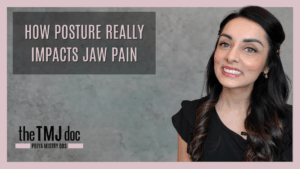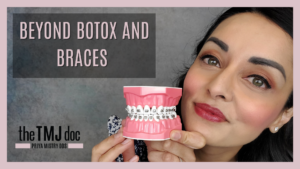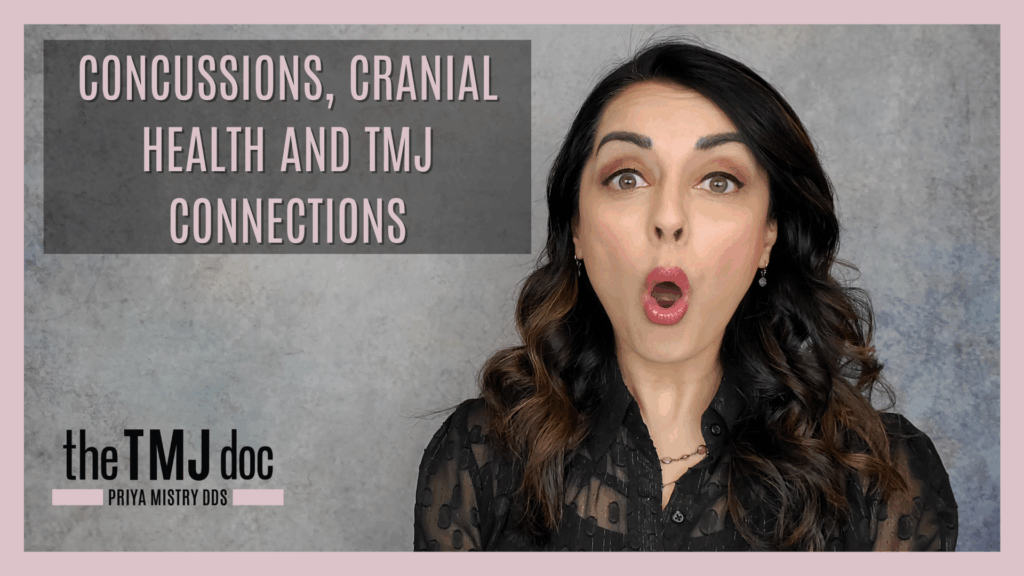Temporomandibular Joint Disorder (TMJ/TMD) is often misunderstood and/or misdiagnosed. This is due to a lack of training in effective diagnosis and treatment of TMJ/TMD in both the medical and dental worlds. Pain associated with this disorder can interrupt your daily life and become debilitating. Jaw clicking and popping are commonly reported symptoms associated with TMJ Dysfunction. A skilled and experienced TMJ Dentist can uncover the causes behind your jaw joint dysfunction and provide effective treatment to help treat your pain and/or jaw joint noises.
Understanding the Temporomandibular Joint
The jaw joints attach the jawbone (mandible) to the skull. These joints are located on either side of the face, just under the cheek bone and close to the ears. Within the jaw joints are two bones – the condyle bone, which is a sizeable convex or rounded bone that the jawbone ends on within the jaw joint, and the articular eminence and fossa of the temporal bone (a skull bone). A cartilaginous disc called the articular disc is positioned between the two bony components of the jaw joint to prevent bone on bone contact in healthy individuals. The articular disc fits over the condyle – kind of like a hoodie – and it has ligaments that hold it in place. When the mouth opens, the condyle and disc will slide forward (toward the front of the head) as one unit. If the disc comes out of alignment, that’s when jaw clicking and popping begins. The clicking/popping sounds are the disc coming in and out of alignment which is not ideal!
Common Causes of Jaw Clicking and Popping
Several issues or conditions could cause the disc to come out of alignment leading to clicking/popping in the jaw joints when chewing, talking, or opening wide like when yawning.
Here are some of the most common reasons you may hear your jaw joints click and pop:
- A misaligned bite
- Arthritis or degenerative diseases in which the hard and soft tissues degenerate
- Trauma or injury in which the jaw is misaligned or damaged
- Muscle strain from overuse, trauma, or bruxism (clenching and grinding your teeth while sleeping)
- A severely retruded (set back) jawbone
Why Does My Jaw Click & Pop?
The reason for your jaw clicking or popping is due to the articular disc coming in and out of alignment. This can happen because there’s too much compression in the joint (not enough space), which will squeeze the disc out of alignment. The disc can also come out of alignment due to certain bite imbalances or bite patterns. Severe clenching/bruxing activity can cause the disc coming out of alignment. The clicking/popping can stay the same for several years or it can progress to a condition called “Disc Displacement Without Reduction”. This is when the disc becomes dislocated and serves as a barrier to opening. With this condition, the clicking and popping goes away and there is a very limited mouth opening typically accompanied with moderate-severe pain. It’s best to consult with a TMJ provider near you if you experience jaw clicking and popping that is persistent or is accompanied by other symptoms. It’s not always possible to make the clicking/popping go away completely, but it IS possible to protect the joints, the discs, AND to prevent jaw locking!
When to Call a TMJ Doctor
Occasional jaw clicking or popping that is not associated with an injury, disease, or that does not produce pain may not be anything to worry about. If the clicking/popping becomes painful or if the jaw starts catching or locking, you should consult with a TMJ Dentist immediately.
- Persistent pain
- Limited jaw movement – locking or catching of the jaw
- Pain with clicking/popping
- Difficulty or pain while eating or speaking
- Other symptoms like headaches, earaches, or feeling of pressure or fullness in the ears
TMJ Dentist Serving Vancouver, WA – near Portland OR
Hearing popping or clicking sounds coming from your jaw joints can be alarming – whether it causes pain or not. If you experience jaw popping and clicking sounds OR episodes of your jaw locking or catching, schedule a TMJ examination with Dr. Priya Mistry by calling (503) 255-8293.







